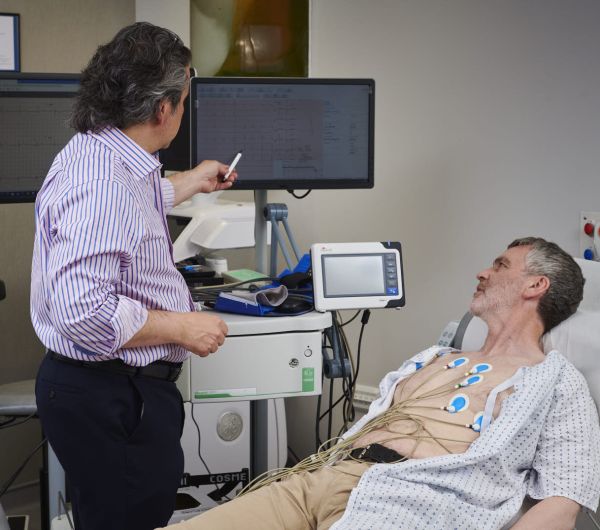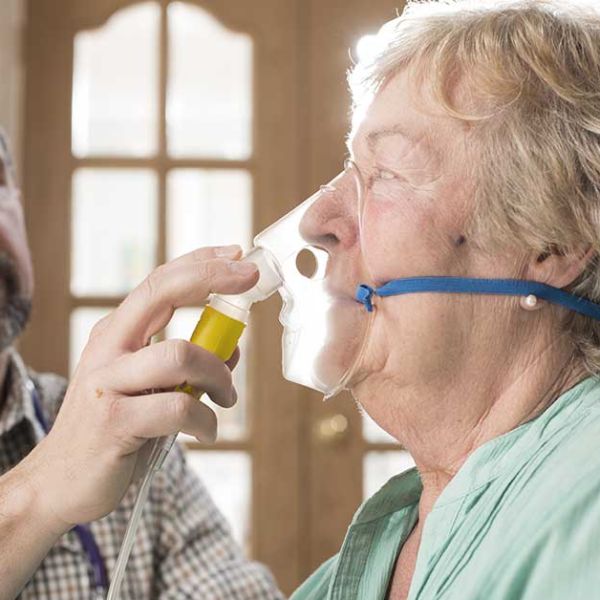

About an ECG test:
An electrocardiogram (ECG) is a test that can help diagnose certain heart conditions by measuring the electrical activity of the heart. An ECG can help diagnose certain heart conditions, including abnormal heart rhythms and coronary heart disease (heart attack and angina). An ECG can also help monitor how treatments for a heart condition, like medicines or implantable cardiac devices, are working.
An ECG can help diagnose:
- Conditions involving the heart’s electrical system
- Heart attacks
- Abnormal heart rhythms (arrhythmia) – rapid, slow or irregular heart beats
- Poor blood supply to the heart
- Heart inflammation (pericarditis or myocarditis)
- Cardiac arrest
A doctor may recommend an ECG for a person:
experiencing symptoms of an abnormal heart rhythm such as:
- Chest pain
- Dizziness
- Fainting
- Fatigue
- Feeling of your heart racing, fluttering, thumping or pounding in your chest (palpitations)
- Shortness of breath
- Sweating


Types of ECG
The three major types of ECG are:
Resting ECG
you lie down for this type of ECG. No movement is allowed during the test, as electrical impulses from other muscles can interfere with the test. This type of ECG usually takes five to 10 minutes.
ambulatory ECG
for an ambulatory ECG you wear a portable recording device for at least 24 hours. You are free to move around normally while the device is attached. A doctor may arrange this type of ECG if you have symptoms that are intermittent (stop-start) which may not show up on a resting ECG. Your doctor may also recommend an ambulatory ECG if you are recovering from heart attack, to ensure your heart is working properly. You may be asked to write down or record any symptoms you experience while wearing the device, including when they occur, so that your own experience can be compared with the ECG.
exercise stress test/stress test
this type of ECG helps your doctor see how well your heart is working during physical activity. It involves having an ECG while you ride a stationary exercise bike or walk on a treadmill. This type of ECG takes about 15 to 30 minutes to complete. A stress test can also involve medicines, to understand their effects on the heart.
Source : https://www.betterhealth.vic.gov.au/


About Respiratory Assessment:
Spirometry is one of the Pulmonary Function Test; they are useful investigations in the management of patients with respiratory disease or respiratory weakness secondary to neurological impairment. They aid diagnosis, help monitor response to treatment and can guide decisions regarding further treatment and intervention. Spirometry can measure all the lung Volumes except residual volume.
Indications
- Investigation of patients with symptoms/signs/investigations that suggest pulmonary disease (e.g. cough, wheeze, breathlessness, crackles or abnormal chest x-ray)
- Monitoring patients with known pulmonary disease for progression and response to treatment (e.g. interstitial fibrosis, COPD, asthma or pulmonary vascular disease)
- Investigation of patients with diseases that may have a respiratory complications (e.g. connective tissue disorders or neuromuscular diseases)
- Preoperative evaluation prior to lung resection, abdominal surgery or cardiothoracic surgery.
- Evaluating patients at risk of lung diseases (e.g. exposure to pulmonary toxins such a radiation, medication, or environmental or occupational exposure)
- Surveillance following lung transplantation to assess for acute rejection, infection or obliterative bronchiolitis.
Please contact us to book for ECG and Respiratory assessment


Get in touch with us
Leave your personal information here to get informed about latest news.



